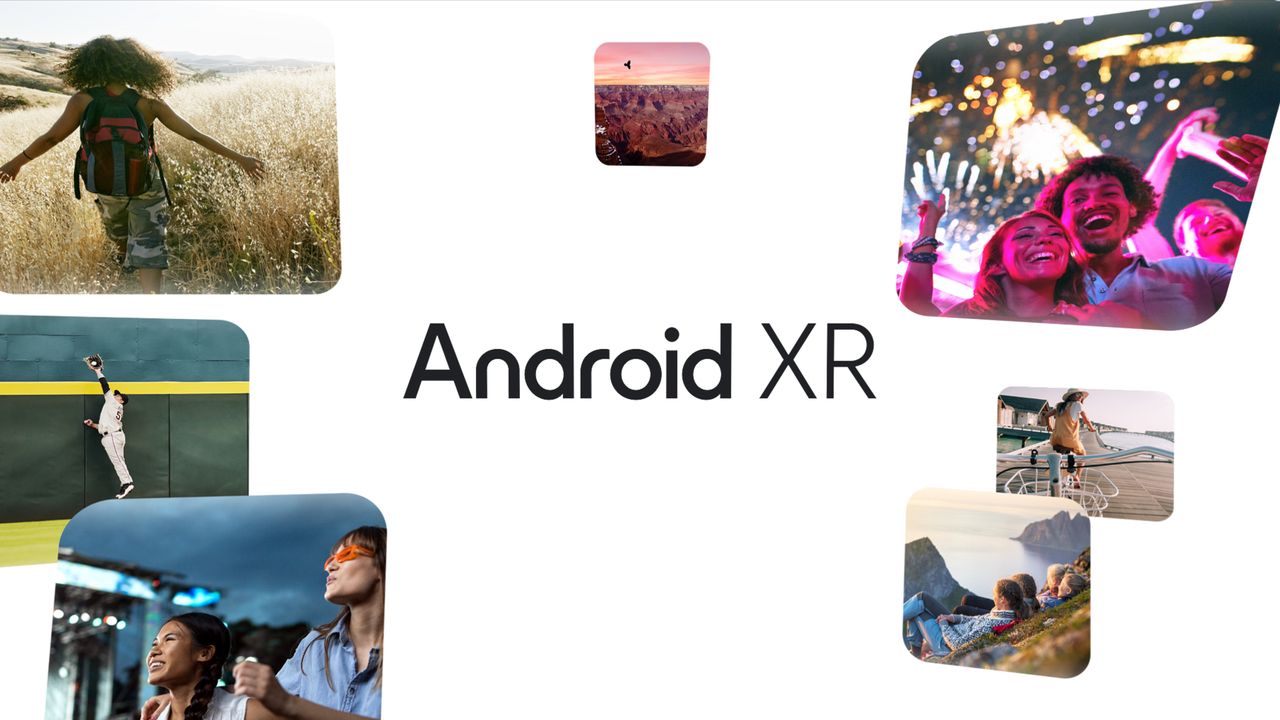
Android XR is Google's latest software platform, made "in collaboration with Samsung" to bring AI and apps to smart glasses, AR glasses, and mixed-reality headsets. The first Android XR product, Samsung's Galaxy XR, is officially here to usher in the next phase of Google's extended-reality software.
It represents Google's return to the mixed-reality space after consigning Google Glass to enterprise and discontinuing Google Cardboard and Daydream. Sameer Samat, president of the Google ecosystem, assured us that they "never stopped working on" XR despite these public failures and that the "Gemini era" means "the time is right for XR."
Google first showed off Android XR at Google I/O 2025, including a live stage demo during the main keynote. Android XR is primarily a software project for Google, and the company is working with companies like Samsung to make headsets, as well as companies like Xreal, Gentle Monster, and Warby Parker to make smart glasses. The first of those collabs, Galaxy XR, is available for purchase as of October 2025.
Android XR may be the most exciting version of Android in years, but anyone unfamiliar with VR headsets or smart glasses may be confused about what Android XR is and what it's built to do. This guide will run through the basics of what to expect, from Samsung Galaxy XR to Google's XR plans for Gemini.
What is Android XR?
"Android eXtended Reality" is an Android spinoff platform designed for wearable devices, similar to Wear OS in that it's (A) co-designed with Samsung and (B) required to deliver efficient processing in a smaller form factor, such as glasses.
XR is a common industry term encompassing virtual, augmented, and mixed-reality devices. Smart glasses don't typically fall under this umbrella since they have no reality-changing display, only audio; Google has included it, however, because it'll use the same baseline Gemini assistant as AR glasses.
Android XR software will underpin the XR headsets and glasses hardware, giving them access to Play Store apps that you won't get on other platforms — mainly Meta's Horizon OS on Quest.
The platform itself supports certain universal features like hand/controller tracking with external cameras or eye tracking with inward cameras — both enabling the kind of controls you first saw on the Apple Vision Pro, and now see on Galaxy XR. However, hardware developers will need to make devices that can take advantage of these tools. Samsung was the first to do so, but there are presumably more to come.
What apps will run on Android XR?
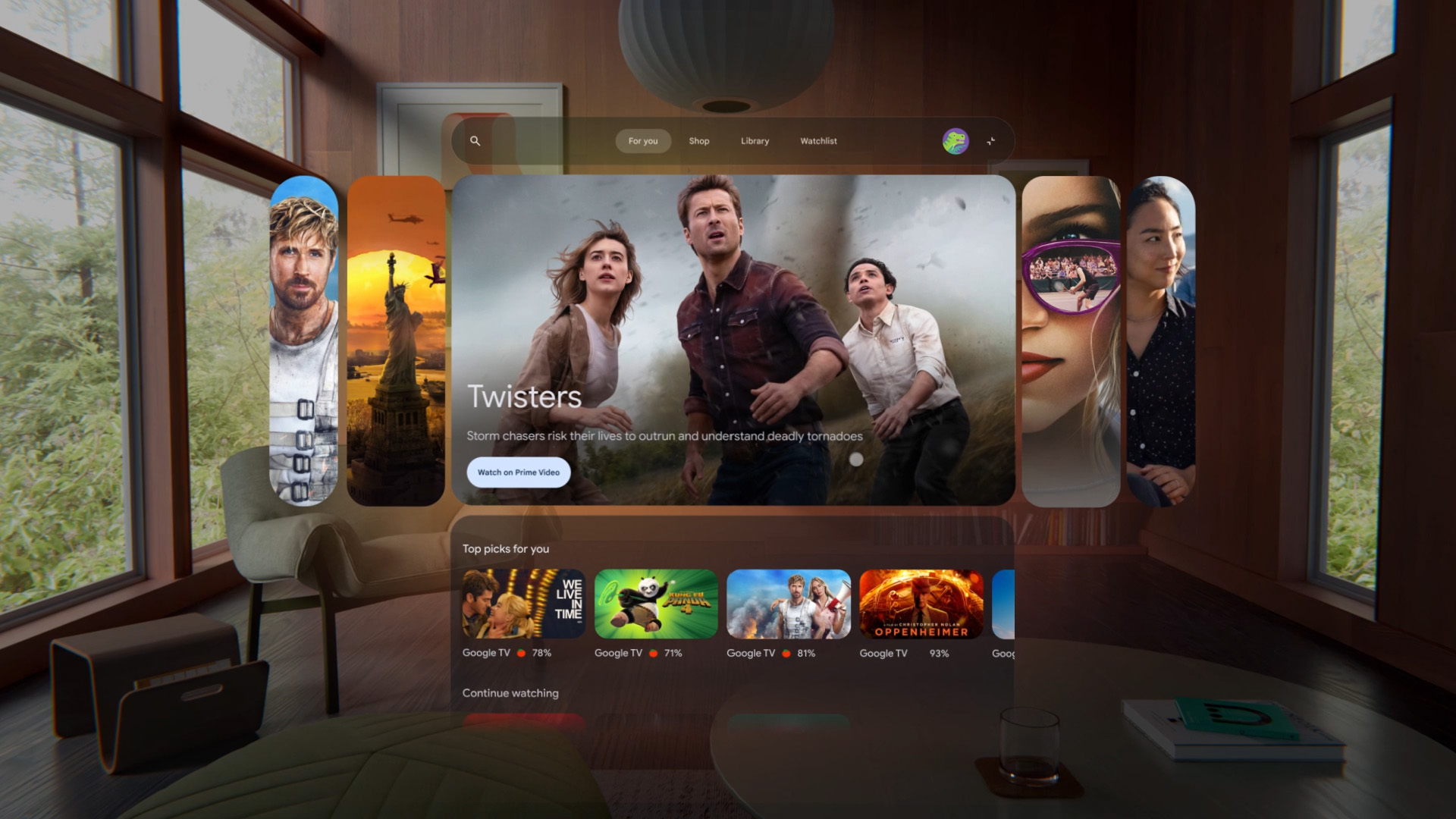
Google Gemini is "at the core" of Android XR, the company says. Whether it's a headset or glasses, it'll use sensors and cameras so that Gemini can "see what you see, whether it's digital or real content, hear what you hear, and react to your gestures alongside your voice."
With the conversationality of Gemini Live, paired with multimodal AI insights, Android XR will let you use natural voice commands to control the UI or ask contextual questions about what you're seeing, either in real life or in XR apps.
In our hands-on with the Samsung Galaxy XR, Android Central's Michael Hicks noted that he could ask Gemini anything about what he was seeing while wearing the headset, and it could provide him with information, including interacting with what he sees in mixed reality.
Hicks said the display on the Galaxy XR was so clear that 4K nature videos on YouTube let him "sink into the landscapes" thanks to the immersion and believability. Google has even built special tricks into the software that give normal 2D videos some 3D depth with the power of onboard AI.
Video support runs the gamut from 2D to 180-degree and 360-degree content, plus support for Google apps like Google TV, 3D Google Photos, Google Maps Immersive View, Google Meet, and Chrome with common AI tricks like Circle to Search.
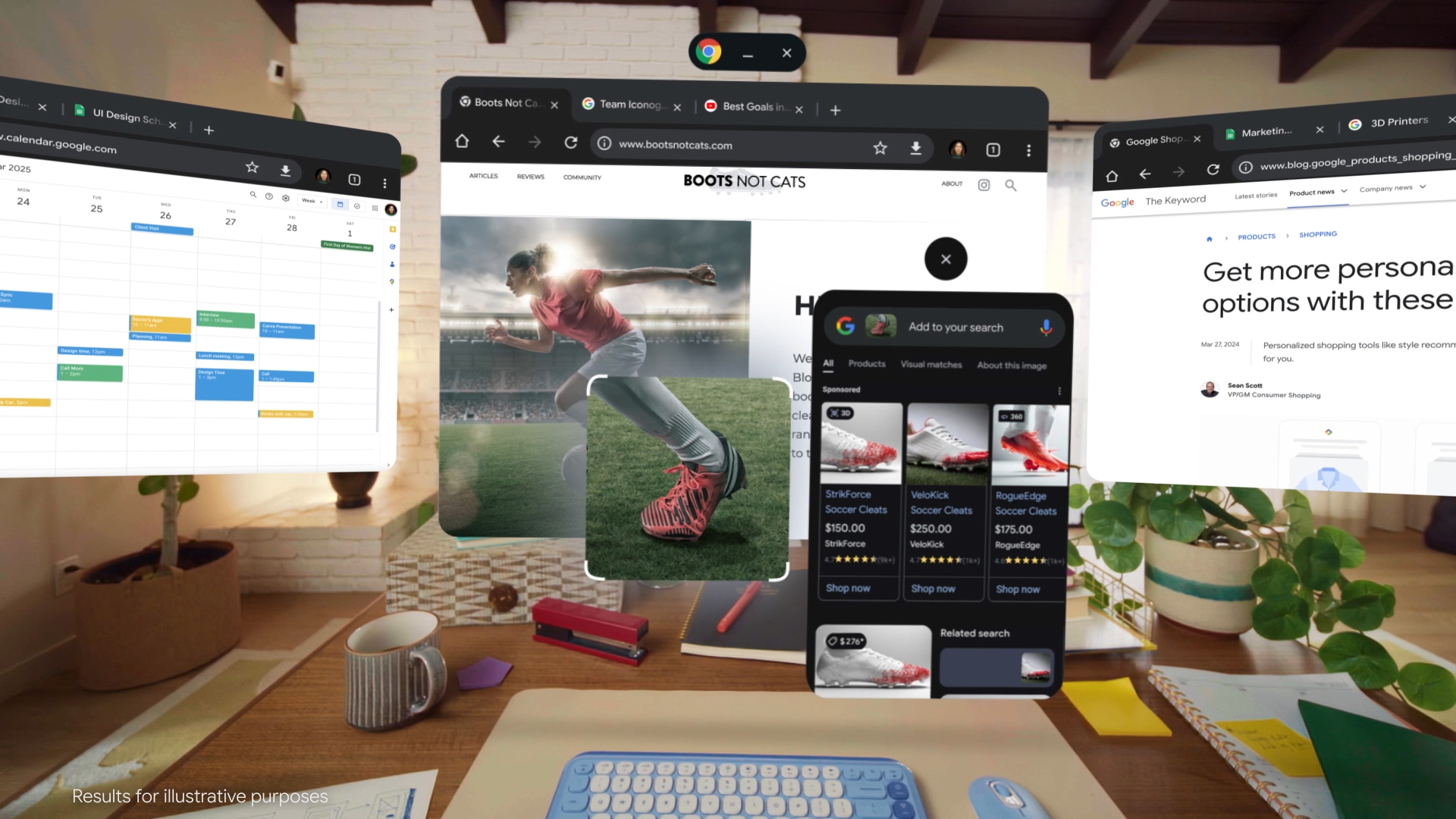
Beyond Google apps, Android XR is compatible with both WebXR and OpenXR, the industry-standard APIs for web-based and native XR apps. That should mean many Meta Quest games should port over to compatible Android XR headsets.
For gaming titles, Demeo, Arizona Sunshine, Job Simulator, Walkabout Mini Golf have been announced so far, and games like Les Mills XR BODYCOMBAT should make this a great way to work out at home. Google is also working with the Job Simulator developers to give its headsets a unique personality, including a new onboarding game that feels a lot like Job Simulator. There are plenty of other games supported, too, and Virtual Desktop makes it possible to use them for PC VR gaming.
The Android XR SDK also supports Android Studio, ARCore, Jetpack Compose, and Unity. Any current Android apps will "just work" on Android XR (according to Google) as long as the developer opts in, though this will probably be a floating window in the "infinite desktop" virtual space; developers will want to optimize the app to the OS for any 3D visual effects. A few devs have already developed apps for Android XR with early access, including MLB, Calm, and Adobe.
Android XR hardware: Samsung Galaxy XR, Project HAEAN, and others
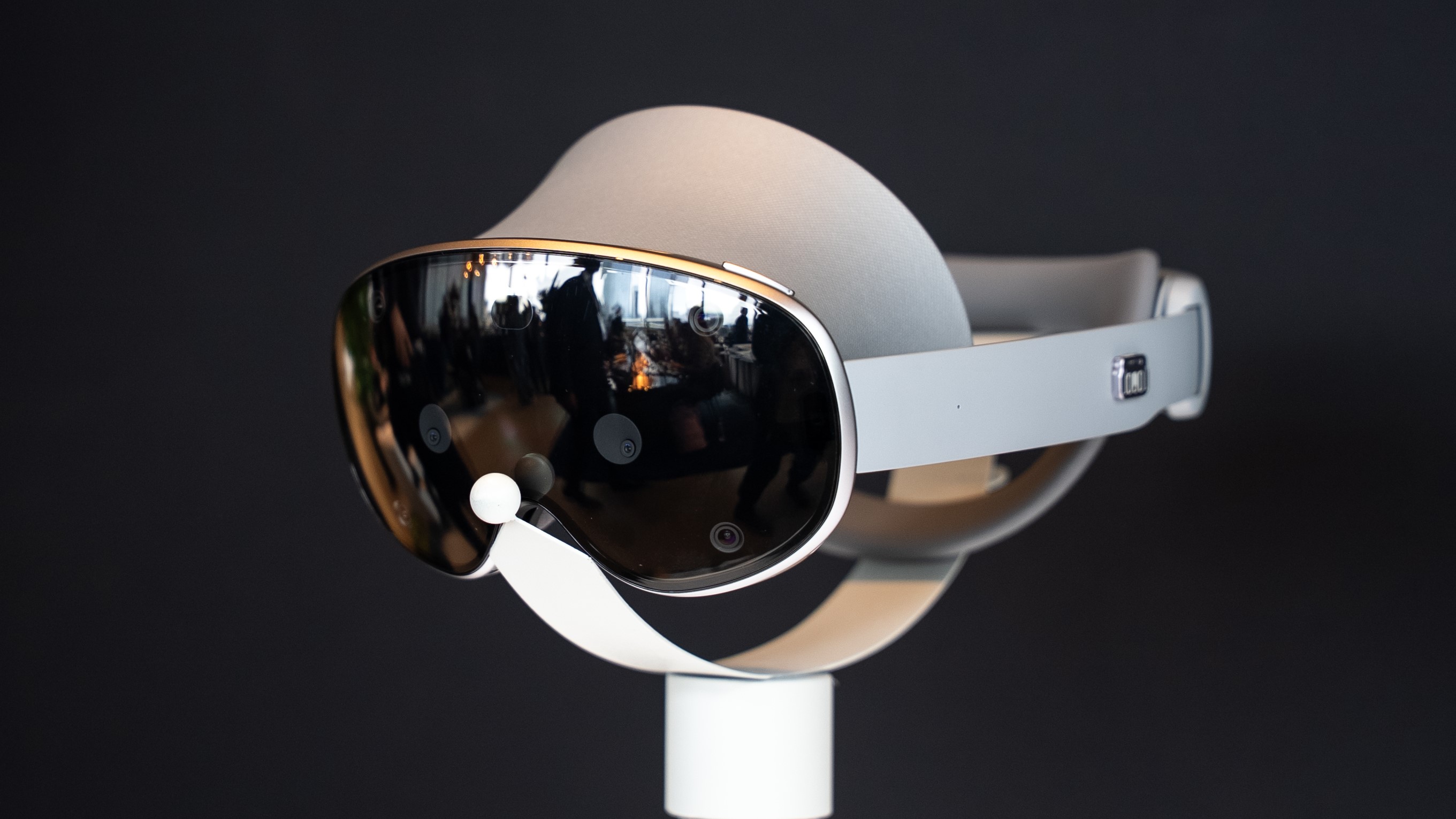
Samsung is a key player in the Android XR vision, even more than we initially thought. It officially launched its first XR headset, the Samsung Galaxy XR, on Oct. 21 for $1,799. It quickly sold out, and its presence on both the Samsung and Google online stores underscores just how closely these companies are working together to build out Android XR.
The company's roadmap could also include a pair of AR glasses sometime in late 2025, but that's unconfirmed.
The Samsung Galaxy XR is powered by the Snapdragon XR2 Plus Gen 2, the chipset announced in January 2024. That chipset supports up to 4.3K per eye, plus a 20% CPU boost and 15% GPU boost over the XR2 Gen 2 in the Meta Quest 3. Here are the full specs for the Galaxy XR headset:
Category |
Specifications |
|---|---|
Processor |
Snapdragon XR2+ Gen 2 |
Memory |
16GB RAM; 256GB storage |
Display |
3,552 x 3,840, 29 million pixels Micro-OLED; 96% DCI-P3 |
Refresh rate |
60Hz, 72Hz (default), 90Hz |
Field of view |
109ºH; 100ºV |
Camera |
6.5MP; 18mm/ F2.0 |
Sensors |
Two passthrough cameras; six world-facing tracking cameras; four eye-tracking cameras; five IMUs; one depth sensor; one flicker sensor |
Mics & speakers |
Six-mic array with beamforming; two dual speakers (Woofer + Tweeter) |
Audio codecs |
MP3, AMR-NB/WB, AAC/ AAC+/ eAAC+, Vorbis, FLAC, Opus, Dolby Digital (Plus, Atmos) |
Video |
Resolution: UDH 8K (7,680 x 4,320) @ 60FPS Codecs: H.263, H.264, HEVC, MV-HEVC, MPEG-4, VC-1, VP8, VP9, AV1 |
Battery |
2 hours general use, 2.5 hours video watching |
Connectivity |
Wi-Fi 7 (802.11a/b/g/n/ac/ax/be); Bluetooth 5.4 |
IPD |
54–70mm |
Weight |
545g with forehead cushion (not including light shield) Battery weighs 302g |
The headset also sports a comfortable Elite-style strap and a removable light shield to ensure the best immersion during VR experiences, but less isolation during mixed-reality apps. It has outer IR cameras for tracking hands or controllers, plus inward cameras for eye tracking.
While Samsung has its own apps and Galaxy AI built off of Gemini, Android XR defaults to Google apps and multimodal Gemini AI for commands and navigation, even on third-party headsets like Galaxy XR. Samsung made its own controllers for Galaxy XR, but they're sold separately from the headset itself. These controllers could be ideal for gaming, where gestures and voice control won't cut it.

Samsung and Google are also working on Project HAEAN, a pair of smart glasses with cameras and a display in the lenses. Google debuted the glasses for the first time at TED 2025, showcasing its ability to translate language live and even remember the locations of items seen in video recordings taken by the glasses.
This was shown on stage at Google I/O when the presenter live-streamed herself walking around backstage, then later asked Gemini what the name was on the coffee cup she passed a few minutes earlier. We went hands-on with Google's smart glasses at Google I/O 2025, so you can get a better idea of what the glasses look like and how they work.
Project HAEAN smart glasses are just a prototype, but we'll see proper consumer versions of Android XR smart glasses, likely sometime in early 2026, from brands like Gentle Monster and Warby Parker.

The prototype glasses, pictured above, worn by Android Central's Michael Hicks, include a set of speakers located in each arm and a single display in the right lens. These connect to an Android-powered phone via Bluetooth and can be used for hands-free phone calls, music playback, and interaction with the Gemini AI assistant.
At least one camera is located on the front of the glasses and can be used to take pictures, film video, or just let Gemini see the world in front of you. This includes the ability to livestream straight from the glasses, a capability that was shown off onstage at Google I/O 2025.
The display can be used to see certain apps, translated text and language, as well as notifications and other information from your phone. So far, all the glasses shown off run Android XR at the core but still require a connection to your phone. Project HAEAN is wireless, and battery life is unknown, but Xreal's upcoming Android XR glasses plug into your phone and are powered by your phone's battery.
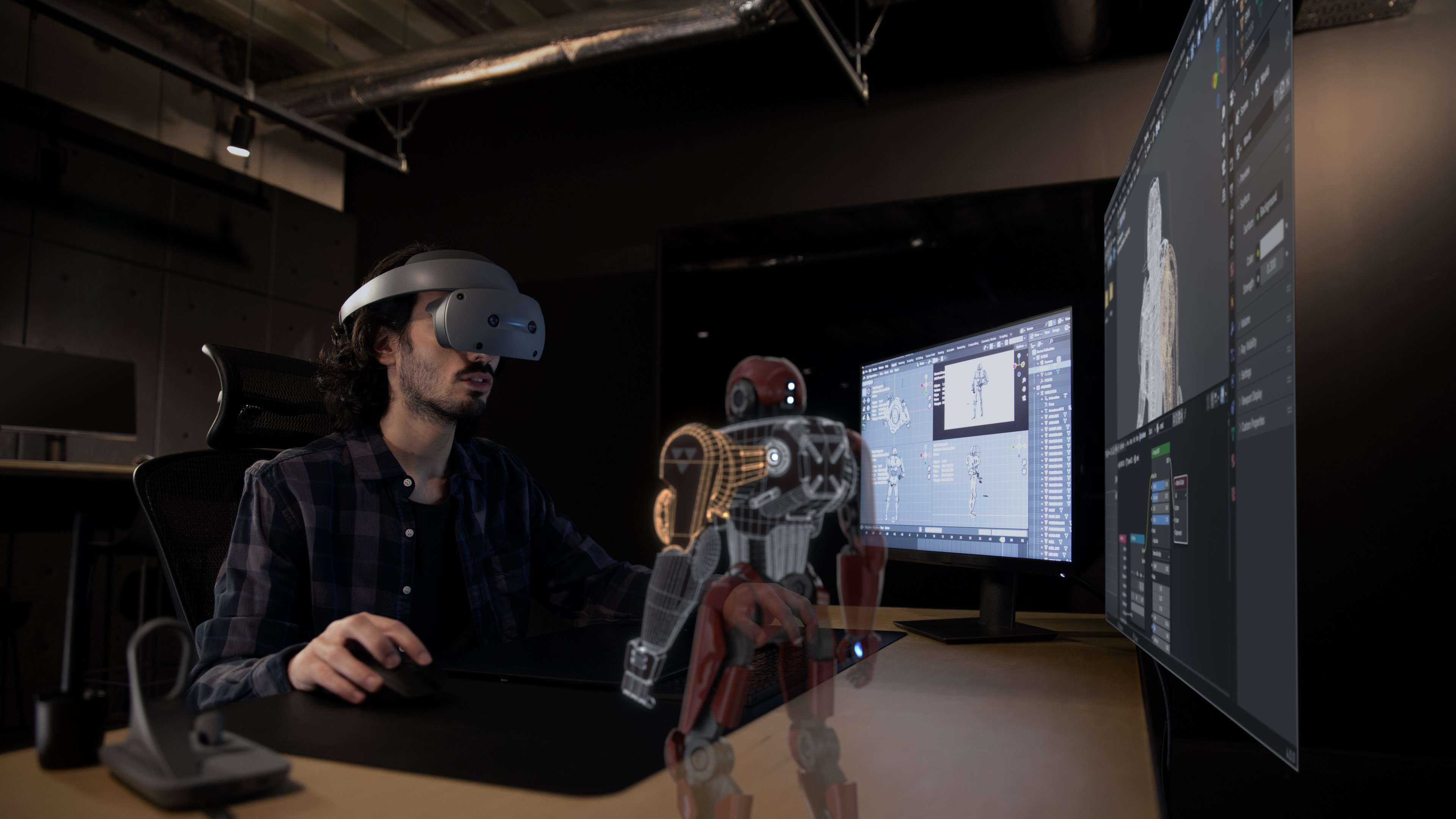
Other Android XR hardware developers will likely choose Qualcomm chipsets, given that Google partnered with Qualcomm and optimized the platform for its silicon. Google has confirmed that Xreal, Sony, and Lynx will develop Android XR devices.
At CES 2024, Sony announced an XR headset with the XR2 Plus Gen 2, 4K OLED micro-displays with pancake lenses that you can flip up like a visor, and 3D productivity software. It's the most likely candidate for Sony's Android XR device.
Lynx, whose current XR headset has dealt with delays and controversy, will develop a new Android XR headset rather than update the R1, based on a statement made to UploadVR.
Will Google make an Android XR device?
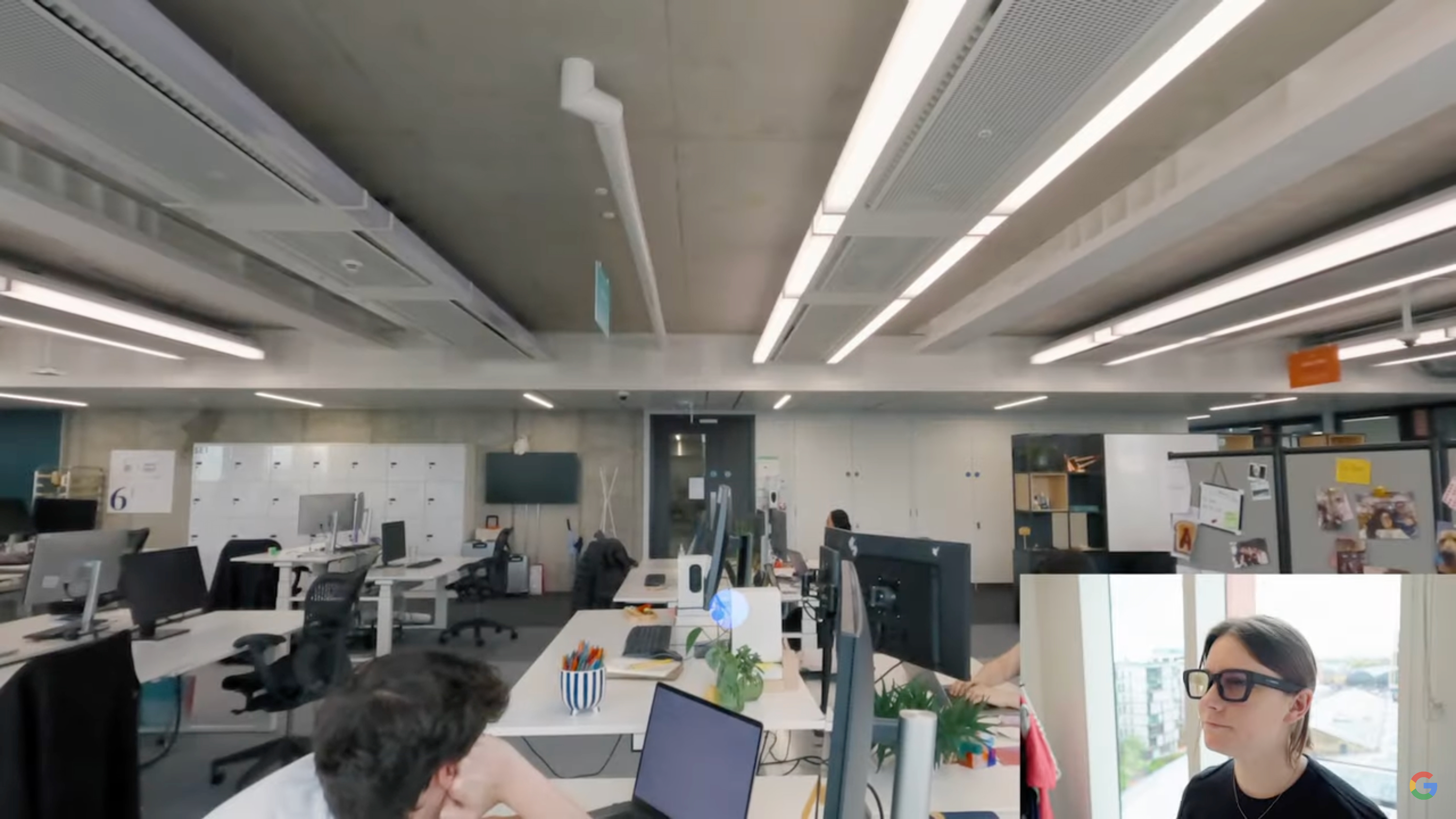
Google is taking a backseat to Samsung in terms of releasing an actual Android XR device, focusing on software. At least for now!
In 2023, The Information reported on Google's XR prototypes, including Project Moohan, a monocular Google Glass-lookalike codenamed "Betty," a two-display spin-off called "Barry," and an unnamed pair of smart glasses from former Magic Leap CTO Paul Greco and his team. It's very possible that these devices are nothing more than prototypes developed to test Android XR, rather than anything planned for wide release.
It's possible that Google could join in on the Android XR fun, but it evidently wants to try and let its partners establish themselves first before cutting in on the action. It's similar to how Google co-developed the new version of Wear OS with Samsung in 2021, but didn't release its first Pixel Watch until late 2022.
For now, we know that Google paid HTC Vive $250 million for “a non-exclusive license for HTC’s XR intellectual property (IP)” as well as engineers who have been working on HTC Vive products and software. Whether this eventually turns into a Pixel-like set of XR hardware in the future is anyone's best guess. For now, though, this move signals that Google is serious about Android XR, and this isn't just another side project that'll be killed off in a year or two.
Android XR vs. Meta Horizon OS
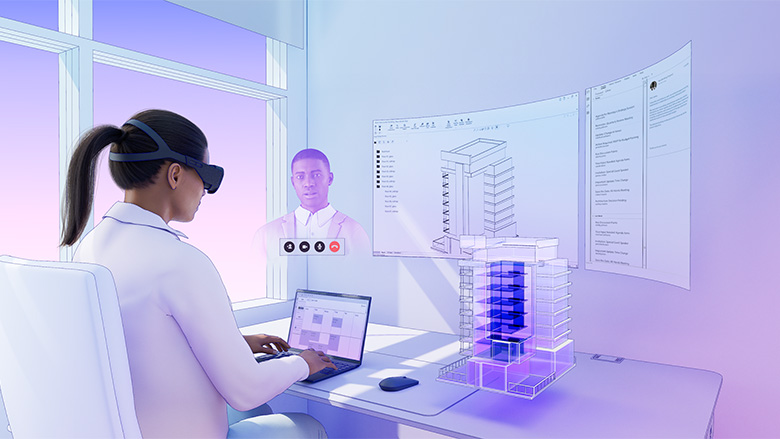
The biggest rival to Android XR will be Meta Horizon OS, the system behind Quest headsets. Meta is the most established brand in the XR space, and it tried to get Google to give Quest headsets Play Store access, only for Google to insist that Meta use Android XR, which Meta rebuffed.
Meta itself made Meta Horizon OS open to partners in 2024, announcing that Lenovo and ASUS ROG would make XR headsets with Meta software and apps. Meta and Xbox also plan to coordinate on a limited-edition headset. To date, no third-party headsets have launched running Meta Horizon OS just yet, but we expect further announcements later in 2025.
Meta has a full library of games it can share with partners, as well as Meta AI. What it doesn't have is access to a Play Store full of apps and a development pipeline designed to convert phone apps into Android XR apps, like Google has; it has to use progressive web apps, and it's had very few productivity partners thus far.
Both platforms use Snapdragon chipsets, hand tracking, and UIs that float windows in virtual or mixed-reality space. Meta has its own popular Ray-Ban smart glasses, and the promise of Meta Orion AR glasses in 2027, with the latter using a similar interface to the Quest.
All of this is to say, Meta Horizon and Android XR have similar goals, methods, and devices. It's far too soon to say if Android XR will be better, worse, or a clone of Meta Horizon. What matters most is that Meta and Google will challenge one another, which ideally will lead to greater innovation in the XR space. Samsung's Galaxy XR is proof that with a full suite of Google and Android apps, Android XR has what it takes to break into the XR space.







